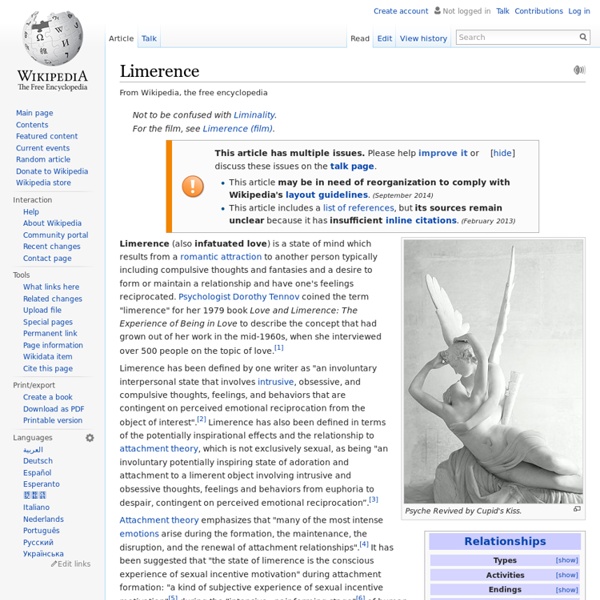Limerence

http://en.wikipedia.org/wiki/Limerence
Related: Coaching and NLP
• The problems with philosophy
Love Or Limerence? 11 Signs You’re In A Fantasy Relationship
Limerence is an involuntary state of deep obsession and infatuation with another person. Lovesick. Longing.
job interviews - job interviews questions and answers, job interviews tips - top tough interviews questions and answers
See the separate articles: job-hunting method and tool - adapt it for your own situation life balance
Deep Dive Study Guide: The Five Dysfunctions of a Team (Summary, Notes, and Tons of Additional Resources) – Usman Consulting Group
We do 1-2 day Leadership & Teamwork Trainings for Your Company If you’d like to conduct a seminar for your organization please click the image below. We use our special ‘TEXAS’ framework to help lead highly functioning teams.
Pivot Table: Excel Pivot Table. Pivot Table Tutorials and Downloads
ShareThis | | Information Helpful? Why Not Donate. TRY OUT: Smart-VBA | Code-VBA | Analyzer-XL | Downloader-XL | Trader-XL| More Free Downloads..
Can pivot tables save your job?
This article is for those of you who don't get pivot tables. Maybe you tried pivot tables once, and didn't see what the big deal was, or maybe you got frustrated when a pivot table wouldn't behave. They can be that way. I'm not going to mince words. If you use Excel on a regular basis, you need to know how to use pivot tables.
Use The Cartesian Questions to Unblock Your Client and Make Better Decisions PLUS Tool to Help! - The Launchpad - The Coaching Tools Company Blog
This month we're looking at back-to-school, goals and getting refocused. Now, I have loved "The Cartesian Questions" ever since I first came across them on my NLP Training. What prompted me to write about the Cartesian Questions was a powerful coaching experience I had with them last week...
Dale Carnegie’s Top 10 Tips for Improving Your Social Skills
Image by kalandrakas. “The ideas I stand for are not mine. I borrowed them from Socrates. I swiped them from Chesterfield. I stole them from Jesus.
Related:



